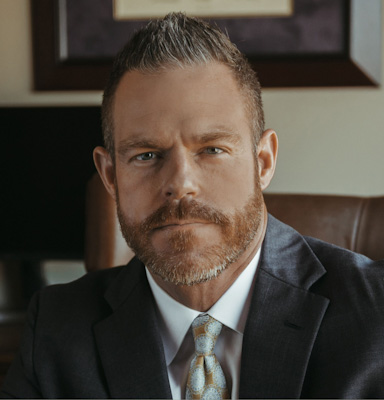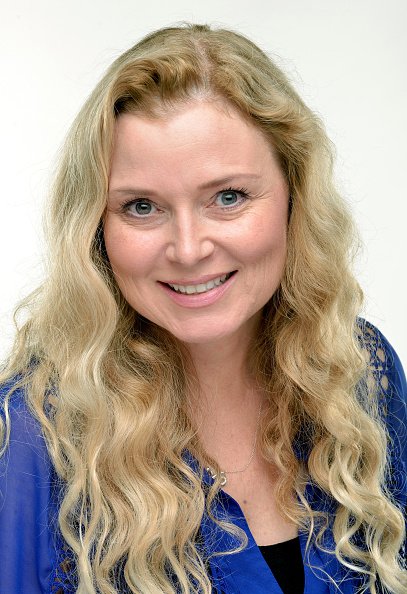Last fall, I attended a continuing legal education conference focused on sex crime defense and an outstanding speaker—who discussed the emerging field of forensic genetic genealogy—mentioned The Genetic Detective, a six-episode reality TV series that aired on ABC in 2020. The reference came from a credible source, so I figured it was worth viewing.
‘The Hot Case’
CeCe Moore, a genetic genealogist who originally worked more toward helping people discover their biological identities and lineage, utilizes The Genetic Detective to recount various situations in which she assisted law enforcement in solving cold cases.
Not knowing where to start, I visited the show’s IMDb page and discovered that “The Hot Case” (the last episode in the series) was the most applicable to my trial work. I was able to view it for free at ABC.com.
The episode focused on a 79-year-old woman from St. George, Utah, who was raped in her home as she slept. Law enforcement was alerted to the attack and immediately conducted a crime scene investigation. They located a large portion of genetic material, namely seminal fluid, that they attributed to the assailant.
The material was collected and submitted to the Combined DNA Index System, a database known as CODIS, which is used by law enforcement to compare unknown DNA profiles to known profiles collected from offenders and missing persons. But the submission didn’t return a result, so a St. George police detective reached out to Moore in hopes that her methods could help.
Moore employs a database of genetic material submitted by individuals who want to discover their genealogy. As the episode plays out, we learn about a divide between those who feel using these family tree-type databases for law enforcement purposes is an assault on privacy rights and those who favor the trade-off of solving cold cases.
The rape was Moore’s first open case. I don’t want to give away too much because the episode, and likely the series as a whole, is worth watching.
Interestingly, “The Hot Case,” takes a meta approach to the science by also incorporating the then-ongoing William Earl Talbott II litigation. Tabbott was charged in 2018 with the 1987 murders in California of Canadian teenagers Jay Cook and Tanya van Cuyklenborg. Moore had aided law enforcement in apprehending Tabbott, and the episode is able to show how the trial played out in real time.
Which is important to Moore and the system as a whole: This was the first time genetic genealogy had been used at trial. The method was allowed as admissible and helped secure a double-murder conviction. In 2024, the Washington Court of Appeals affirmed Talbott’s judgement and sentence, with a directive that the trial court strike a firearm enhancement. The state supreme court denied review the same year.
DNA evidence in a criminal prosecution
Moore works backward with the relevant and available DNA profiles, and her discussion and demonstration of how she does so is remarkable. But I’ve yet to see genetic genealogy used firsthand in a criminal case.
I wouldn’t be surprised if it comes up, though, as prosecutors will try to employ genetic evidence any chance they have. After all, the only thing better than DNA evidence for a prosecutor is a confession. Actually, some might argue that DNA evidence is still the preferred ammunition. Science is objective.
More importantly, the general public swallows it hook, line and sinker. DNA is a complicated subject, and most receive only limited information through media saturation.
Consequently, those litigants willing to put in the time and effort to further educate themselves will be ahead in the ball game. I know that sounds self-evident, but the uninitiated would be surprised to learn how many players in the legal arena lack more than a basic understanding of a topic that sometimes determines life and death.
And that is scary because when the science is really examined, in my experience, it becomes clear that most situations involving DNA are far from the clear-cut conclusions they initially appear to be.
Turning an obstacle into an advantage
You win your cases at your desk, not inside the courtroom. Many times, if you know the subject better than your adversary, the conclusion isn’t the crux; it’s the delivery that matters most.
Think about it: Suppose you’re defending someone charged with a shooting. In that case, you need to educate yourself on the qualities of gunshot residue, blood splatter evidence, different calibers of firearms, rifling and impressions, among other things. If it’s an arson allegation, you have to be up to snuff on burn patterns, accelerants and smoke and flame colors. Even when it comes to something like a simple DUI, you need to understand the ins and outs of standardized field sobriety tests, gas chromatography, chemical tests, and drug and alcohol metabolization.
The same goes for cases that involve DNA. In order to speak intelligently with an expert on the subject, you have to educate yourself. It’s necessary to read relevant literature to establish a firm grasp on the subject’s essential aspects and stay abreast of developments in the field.
Maybe even more important than speaking with an expert on cross-examination, though, is speaking with a potential jury during voir dire. To the degree allowed by the court, you want to educate the prospective fact-finders. The only way to make that process smooth is to know the material well enough to boil it down to terms and analogies that will resonate.
After all, did you know you can deposit your DNA through secondary and even tertiary transfer? Moreover, there’s literature that discusses quaternary transfer, which is a DNA transfer from one person to another whom they never even touched. For instance, let’s say someone touches a doorknob. Someone else then touches that same doorknob and then touches their car door. A third person later touches that same car door. That third person has now potentially acquired the first person’s DNA, even though they never had contact with them.
Also, were you aware that we can deposit our DNA through aerosol transfer simply by speaking? Most people, and plenty of attorneys, have no idea about these mechanisms.
And that’s just the tip of the iceberg. The existence of DNA merely shows that genetic material is present. Every other circumstance is still subject to multiple facts, considerations, circumstances and interpretations. Those interpretations can lead to innocent explanations if you understand the science.

Adam Banner
Adam R. Banner is the founder and lead attorney of the Oklahoma Legal Group, a criminal defense law firm in Oklahoma City. His practice focuses solely on state and federal criminal defense. He represents the accused against allegations of sex crimes, violent crimes, drug crimes and white-collar crimes.
The study of law isn’t for everyone, yet its practice and procedure seem to permeate pop culture at an increasing rate. This column is about the intersection of law and pop culture in an attempt to separate the real from the ridiculous.
This column reflects the opinions of the author and not necessarily the views of the ABA Journal—or the American Bar Association.

